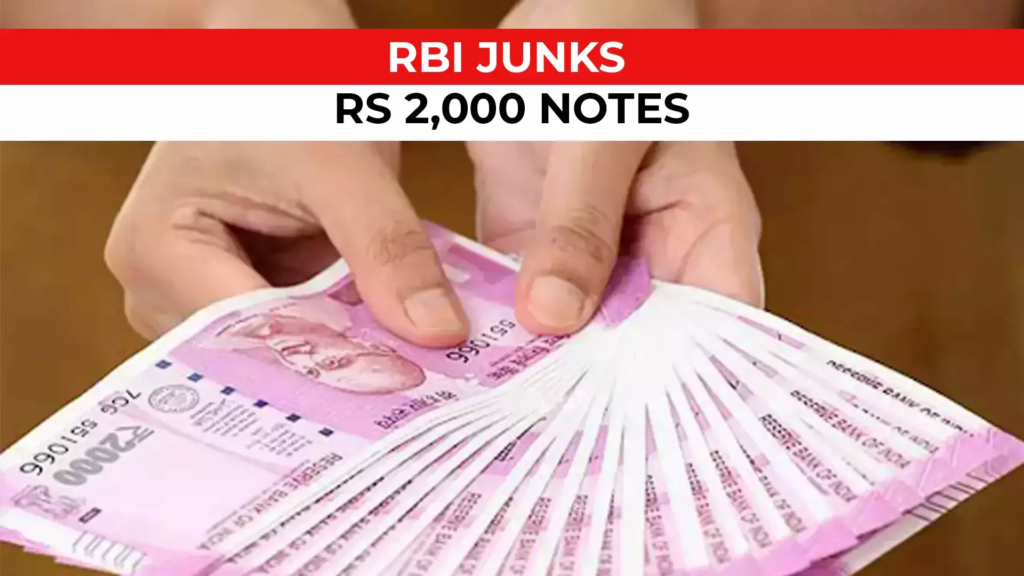Introduction:
In an effort to promote transparency, combat corruption, and foster a more efficient monetary system, the decision to stop issuing Rs 2,000 notes with immediate effect has been taken. This move aims to address several concerns related to the usage and circulation of high-value currency notes, and it holds the potential to bring about significant positive changes to the Indian economy. This article explores the rationale behind discontinuing Rs 2,000 notes and the potential benefits it may yield.
I. The Need for Change A. Curbing Black Money:
- Inhibiting Hoarding and Tax Evasion
- Encouraging Digital Transactions
B. Countering Counterfeit Currency:
- Deterring Illegal Activities
- Safeguarding Economic Stability
II. Transition Challenges A. Ensuring Adequate Replacement Currency:
- Smooth Transition for the General Public
- Mitigating Potential Short-Term Disruptions
B. Managing Currency Availability:
- Strengthening Banking Infrastructure
- Facilitating Currency Exchange Processes
III. Potential Benefits A. Improved Monetary Tracking:
- Enhanced Tracing of Cash Flows
- Facilitating Anti-Money Laundering Efforts
B. Reduced Corruption:
- Deterring Bribes and Illicit Transactions
- Strengthening Government’s Anti-Corruption Drive
C. Boosting Digital Payments:
- Encouraging Cashless Transactions
- Advancing Financial Inclusion
IV. Public Awareness and Preparedness A. Communicating the Decision:
- Transparent Information Dissemination
- Addressing Public Concerns
B. Promoting Financial Literacy:
- Educating Citizens about Digital Payments
- Ensuring Access to Banking Services
Conclusion:
The discontinuation of Rs 2,000 notes represents a significant step towards fostering economic stability, curbing black money, and strengthening the financial system. While the transition may pose temporary challenges, they can be effectively addressed through proactive measures such as ensuring adequate replacement currency and managing currency availability. The potential benefits of this move, including improved monetary tracking, reduced corruption, and a boost to digital payments, hold promise for a more transparent and inclusive economy.
In order to ensure a smooth transition, it is crucial to prioritize public awareness and preparedness. Clear and transparent communication about the decision, along with efforts to promote financial literacy and accessibility to banking services, will play a vital role in garnering public support.
Discontinuing Rs 2,000 notes is not a decision taken lightly, but rather a strategic move aimed at enhancing the overall economic landscape. By adapting to this change, India can reinforce its position as a progressive nation committed to combating corruption, fostering financial inclusion, and achieving sustained economic growth.
Visit here: Ureadit.com

